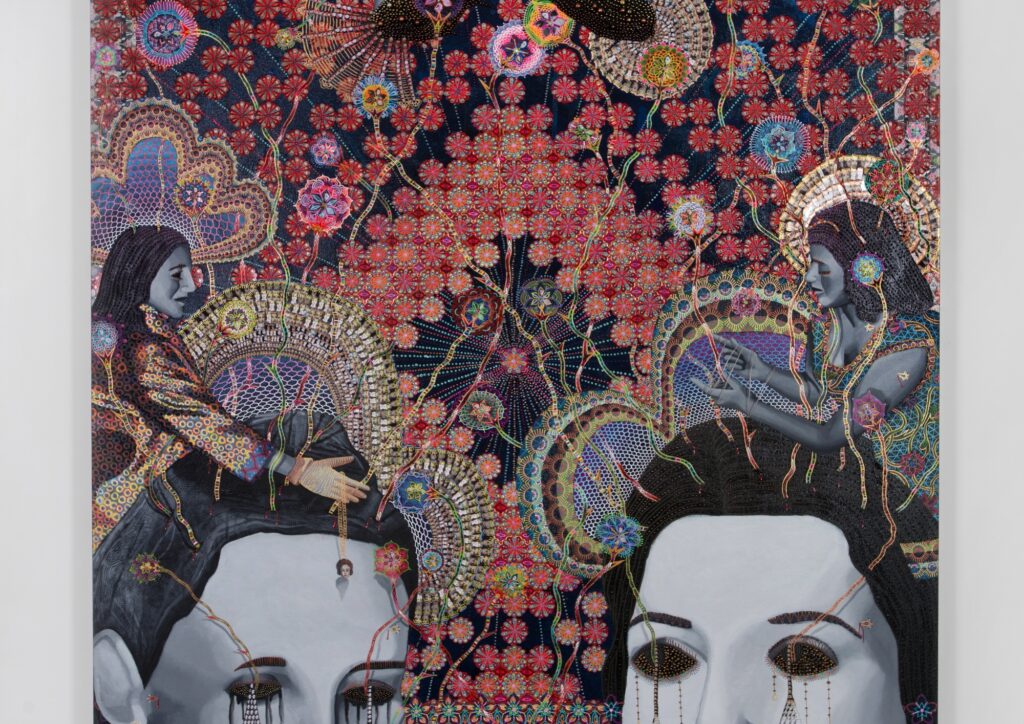This contribution brings together three practitioners working across research, education, curation, and communal theatre in the UK, fields that are deeply implicated in the violence of colonial modernity. We engage in a dialogue across our locations within extractive institutions, specifically Higher Education and heritage/cultural organisations, with the intention of imagining and enacting a language-practice of anticolonial feminism built through embodied experience and collaborative action. Following our intuition and the teaching of feminist, queer, Indigenous, and Black scholars, we centre embodiment, materiality, affect, aesthetics and relations of care in our steps toward the future.
Our piece takes the form of an evolving conversation that builds upon and exceeds “the word” as a mode of communication and expression. We understand the privileging of written language (primarily English), as well as the visual, in the production and transmission of knowledge to be an effect of ongoing colonial domination. Against this current, we explore the motion/s of decolonial and anticolonial feminisms, which move within other scripts and sites of knowledge including land, body, breath, spirit, and sensation. As such, we propose that anticolonial knowledge is cultivated in ways that foster connections across time, space, struggles, and imaginaries.
Working with art, scholarship, performance, dream states, haunting, discomfort, prophesy and more, our dialogue takes aural/sonic, visual and written forms. We depart from two suggestions which focus attention on processes and practices: 1) methods are transformative opportunities for educators in the classroom and practitioners in the field; and 2) lived experiences are sources of critical reflection and emergent theory. Thinking and working across mediums, institutions, and sites of power, we aim to disrupt, reclaim, and transform possibilities, asking tenderly and with rage, whose desires shape our work and practice?

